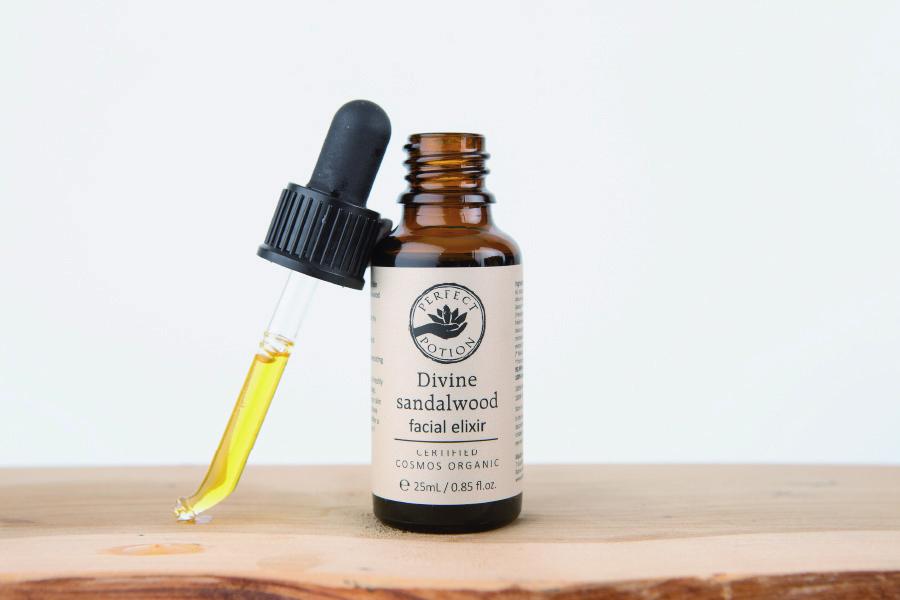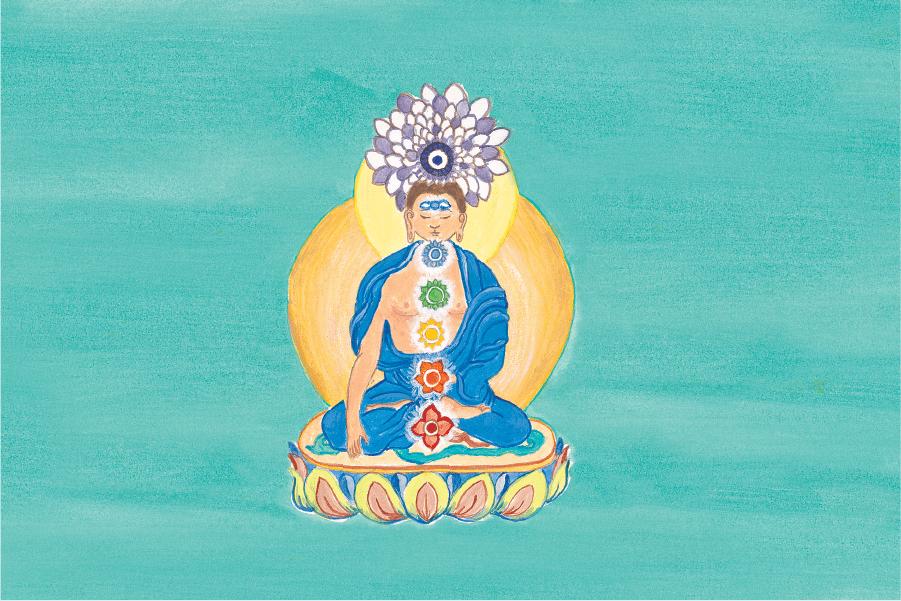
The beauty of nature, and its profound effects on our wellbeing, has long been revered by cultures around the world.
Humankind’s connection with nature is undeniable – for we have all come from, and will always return to, nature – and in the recent years there has been a resurgence of people rediscovering this divine connection.
One of the most beautiful and profound ways to reconnect with nature is through the Japanese concept of shinrin-yoku.
WHAT IS SHINRIN-YOKU?
Shinrin-yoku (森林浴) translates to ‘forest bathing,’ or ‘taking in the forest atmosphere,’ and is a practice that honours the sacred role that nature plays in physical, emotional and spiritual health.¹
It means to bask in the grandeur of the wilderness, and soak up the tranquil, soul-rejuvenating atmosphere.
It means to drink in the forest through all our senses for a truly immersive, enveloping and nourishing experience.
This mindful activity isn’t about exercise through hiking or jogging.3
It’s about being in nature and feeling that deep, reverent connection with the wilderness.
Slow down.
Be present.
Breathe it all in…
...and feel the inspired emotion of awe.2
The term was coined in 1982 by Tomohide Akiyama, Director of the Japanese Forestry Agency, as a marketing exercise to encourage people living in the city to spend more time in nature.4
The word itself exemplifies the poetic beauty of the Japanese language, and is an expression of kotodama – the Japanese belief that words contain spirit and energy.
It’s near impossible to understand the beautiful, holistic essence of the term shinrin-yoku without an understanding of the kanji, so below is a simple guide to the meaning of the characters.
SHINRIN 森林 (しんりん) – forest19
The word shinrin (しんりん) 森林 is comprised of two kanji characters:
- 森 (もり) mori, which means forest (usually a denser, bigger woodlands), and
- 林 (はやし) hayashi, which means forest grove (usually denoting a smaller forest).
If you look closely, the kanji is entirely comprised with 木 (き) which means tree – visually symbolising the fact that all woods are made up of many trees.
When it comes to the term shinrin (しんりん) 森林; the kanji is a combination of the two types of forests – embodying the essence of an expansive forest.
YOKU 浴 (あびる;ヨク) – bathing19
The second part of shinrin-yoku is a kanji character which means to bathe in; to bask in; to be flooded or showered with; or to immerse in.
It can be read as あびる abiru, or as ヨク yoku – as found in shinrin-yoku.
SHINRIN-YOKU 森林浴 (しんりんよく) – forest bathing19
Shinrin-yoku therefore means, quite literally, to bathe in the forest.
SHOP THE FOREST-BATHING COLLECTION
ADVICE ON FOREST BATHING
In his book Forest bathing – how trees can help you find health and happiness, immunologist and professor Dr Qing Li offers practical advice for practising shinrin-yoku.2
Li’s tips include:
- Find a place that fills your heart with joy.
- Leave your phone and camera behind – you want to be fully present in the moment.
- Use all five senses. Let nature enter through your ears, eyes, nose, mouth, hands and feet.
He suggests to:
o Listen to the birds singing and the breeze rustling in the leaves of the trees.
o Observe the different shades of green leaves and the sunlight filtering through the branches.
o Smell the fragrance of the forest and natural scent of the phytoncides.
o Taste the freshness of the air as you take deep breaths.
o Feel the trunk of a tree, dip your toes and hands into the stream. Lie on the forest floor.1,2
BENEFITS OF SHINRIN-YOKU FOR BODY, MIND AND SPIRIT
Humankind throughout history has always had an innate connection with nature, and in the modern age, researchers are now beginning to understand the physiological, emotional and spiritual implications of relationship with nature.1
Many Japanese studies – which influenced further studies in Korea, China and Europe – have reported that spending time in the forest has positive emotional, physiological and restorative effects, and around the world shinrin-yoku is receiving increased attention for its capacity to promote relaxation and reduce stress.5
Research has shown that forest-bathing has many physiological and psychological benefits - from helping with burnout syndrome, to reducing symptoms of anxiety and depression, to improving immune and cognitive function.4
 |
BODY – FOREST-BATHING BENEFITS FOR PHYSICAL HEALTH AND WELLBEING Some of the positive health outcomes reported for forest-bathing include:
Shinrin-yoku has also demonstrated a positive impact on:
One study, Effect of forest bathing trips on human immune function by Qing Li, found forest bathing increased natural killer (NK) activity – with NK cells best known for their ability to kill virally-infected cells and tumour cells.4,16,20 This in turn increased the levels of intracellular anticancer proteins such as perforin, GRN and GrA/B, leading Li to suggest that regular forest bathing may have a preventative effect on cancer generation and development.1 You can read more about the science research on physical health benefits here. |
 |
MIND – FOREST-BATHING BENEFITS FOR PSYCHOLOGICAL AND EMOTIONAL WELLNESS
Another study, a psychological study published by Marc Berman in the Journal of Physiological Anthropology, examined whether walking in nature may be beneficial for individuals with major depressive disorder (MDD). The results demonstrated that individuals diagnosed with MDD exhibited cognitive and affective improvements after walking in a nature setting. It was concluded interacting with nature may be clinically useful as a supplement to existing treatments for MDD.15 More research has reported potential benefits in the management of psychological symptoms including:
In a study by the International Journal of Environmental Research and Public Health, Emotional, restorative and vitalizing effects of forest and urban environments at four sites in Japan, Dr Norimasa Takayama and a team of researchers concluded that short walk in the forest:6
Associate Professor Ming Kuo, in Frontiers in Psychology Journal article How might contact with nature promote human health? Promising mechanisms and a possible central pathway, reports that contact with nature has three psychological effects:9
These experiences of awe are associated with healthier, lower levels of inflammatory cytokines (cytokines are small, secreted proteins released by cells, which when inflamed, can have an effect on pain20,21). It was also proposed that enhanced vitality predicts resistance to infection and lowered risk of mortality, and that attention restoration may help reduce risky health behaviours such as smoking, overeating and drug or alcohol abuse.9
|
 |
SPIRIT – FOREST-BATHING BENEFITS FOR THE SOUL AND SPIRITUALITY
In my latest book, The Complete Guide to Aromatherapy: Volume III – Psyche & Subtle, I explores the spiritual dimension of scent and propose that there are two pathways to a more spiritual and holistic understanding of scent, which are awe, and biophilia – a deep love for nature.11 Kathryn Williams & David Harvey, in their Journal of Environmental Psychology paper Transcendent experience in forest environments, examine why we experience the biophilic responses of awe and transcendence in nature.7 The authors characterise transcendent experiences as:
And one of the places people often report feeling this transcendent experience is in the wilderness. It elicits powerful emotions to be alone in an old growth forest. As you stand surrounded by towering ancient trees; inhaling the deep, mysterious, invigorating scent of the woods; watching as dappled light filters through the emerald canopy; and feel soft moss beneath your fingertips; it fills you with the inspired emotion of awe. Williams & Harvey report that natural and wilderness environments elicit feelings including:7
They explain that psychodynamic approaches suggest the transcendent moments can be attributed to the dynamic forces of the unconscious, citing the work of Carl Jung, whose lifetime of work focuses on the unconscious, archetypes and symbolism. Jung proposes that the emotional depth and awe we experience in nature arises when we realise nature can never be comprehended. These transcendent moments allow for self-growth; encourage you to tune into your intuition; help connect you with the divine and the sacred element of nature; and can help enhance your spiritual practices. |

SHINRIN-YOKU AND ESSENTIAL OILS
Naturopathic doctor Nicole Redvers N.D. of the Deninu K’ue First Nation peoples suggests that – for our own physical, mental and spiritual wellbeing and the wellbeing of our fragile planet – we must begin to recreate our relationships with nature.12
She suggests we do this by walking in the forest once a week; gardening; increasing the plant companions in our homes and workplaces; or just spending time in nature.12
When we are not able to go outdoors for forest-bathing, Dr Quin Li suggests we should then bring the scent of the outdoors indoors by diffusing essential oils extracted from the trees that are found in the forest.2
Li attributes the therapeutic benefit of shinrin-yoku to phytoncides.2
Phytoncides are the olfactory-related elements of the forest, and share a very similar chemical makeup to essential oils from trees found in the wilderness.4
Conifer essential oils such as fir, hiba, hinoki, sugi, spruce and pine are rich in phytoncides.
The scent of these conifer oils is reminiscent of the tranquillity of the forest, and alongside this deep emotional association, you are very likely to receive some of the benefits of forest-bathing simply by diffusing the oils.2
Studies have shown that exposure to phytoncides can:2
- significantly increase the number of NK activity, enhancing the activity of anticancer proteins
- significantly decrease the levels of stress hormones
- increase the hours of sleep
- decrease anxiety, aggression, fatigue and mental confusion
- stimulate a pleasant mood
- significantly lower blood pressure
- suppress sympathetic nervous system activity and increase parasympathetic nervous activity.
For this reasoning, Li therefore states we can achieve similar results to forest-bathing by diffusing essential oils in our homes.2
CREATE YOUR SHINRIN-YOKU EXPERIENCE AT HOME
To create your shinrin-yoku experience you can:
-
- Place up to six drops of Forest Bathing Essential Oil Blend into your diffuser.
- Add 10 drops of Forest Bathing Essential Oil Blend to 20 drops of essential oil solubilizer in a spray bottle, then add water. This can then be used to mist your home.
- Add 5 drops of Forest Bathing Essential Oil Blend to 10 ml of carrier oil such as sweet almond oil and use as a massage oil.
- Add a few drops of essential oil to a warm bath.
*SAFETY NOTE: Please follow the safety section of each essential oil to ensure that you use the essential oils safely. Do not ingest any of the essential oils and never apply undiluted essential oil topically.
Salvatore Battaglia
Global Leading Expert in Aromatherapy for 30+ Years
 |
Salvatore Battaglia is a globally renowned aromatherapist and educator, frequently called upon as an expert to speak at international conferences. He is the author of numerous best-selling evidence-based aromatherapy texts, including The Complete Guide to Aromatherapy I & III, which are used as study material for numerous aromatherapy schools, as well as creating masterclasses and webinars for the Perfect Potion education platform.Salvatore is also the master blender at Perfect Potion, creating aromatic synergies of nuance and complexity that are entirely matchless in scent and sophistication. |
REFERENCES
- Li Q. Effect of forest bathing trips on human immune function. Environmental Health and Preventive Medicine, 2010; 15(1): 9-17. doi: 10.1007/s12199-008-0068-3
- Li Q. Forest bathing – how trees can help you find health and happiness. Viking, New York, 2018.
- Miyazaki Y. Shinrin-yoku – the Japanese way of forest bathing for health and relaxation. Aster, London, 2018.
- Tsunetsugu Y et al. Trends in research related to ‘shinrin-yoku’ (taking in the forest atmosphere or forest bathing) in Japan. Environmental Health and Preventive Medicine, 2010; 15(1): 27-37. doi: 10.1007/s12199-009-0091-z
- Oh B et al. Health and well-being benefits of spending time in forests: Systematic review. Environmental Health and Preventative Medicine, 2017; 22(1) :71. doi: 10.1186/s1199-017-0677-9
- Takayama N et al. Emotional, restorative and vitalizing effects of forest and urban environments at four sites in Japan. International Journal of Environmental Research and Public Health, 2014; 11(7): 7207-7230. doi: 10.3390/ijerph110707207
- Williams K, Harvey D. Transcendent experience in forest environments. Journal of Environmental Psychology, 2001; 21(3): 249-260. doi: 10.1006/jevp.2001.0204
- Berman MG et al. Interacting with nature improves cognition and affect for individuals with depression. Journal of Affective Disorders, 2012; 140(3): 300-305. doi: 10.1016/j.jad.2012.03.012
- Kuo M. How might contact with nature promote human health? Promising mechanisms and a possible central pathway. Frontiers in Psychology, 2015; 6: 1093. doi: 10.3389/fpsyg.2015.01093
- Song C et al. Individual differences in the physiological effects of forest therapy based on Type A and Type B behavior patterns. Journal of Physiological Anthropology, 2013; 32(1): 14.
- Battaglia S. The Complete Guide to Aromatherapy: Volume III – Psyche & Subtle. Third Edition, Black Pepper, Brisbane 2021.
- Redvers N. The science of the sacred – Bridging global Indigenous medicine systems and modern scientific principles. North Atlantic Books, Berkeley, 2019.
- Hughes K. The incense bible – Plant scents that transcend world culture, medicine and spirituality. Routledge, New York, 2014.
- Schnaubelt K. Medical aromatherapy. North Atlantic Books, Frog, Berkeley, 1999.
- Lee J et al. Nature therapy and preventive medicine. In Jay Maddock ed. Public Health - Social and Behavioral Health. Intech Open, 2012. doi: 10.5772/37701
- Li Q et al. Visiting a forest, but not a city, increases human natural killer activity and expression of anti-cancer proteins. International Journal of Immunopathology and Pharmacology, 2008; 21(1): 117-127. doi: 10.1177/039463200802100113
- Southern Cross University. Perfect Potion hinoki wood oil - Certificate of analysis, 2019.
- Southern Cross University. Perfect Potion hinoki leaf oil - Certificate of analysis, 2019.
- Jisho. Japanese Dictionary. https://jisho.org/word/森林浴https://jisho.org/word/%E6%A3%AE%E6%9E%97%E6%B5%B4
- Eissmann, Philipp. Natural Killer Cells. British Society for Immunology. Imperial College, London, UK. https://www.immunology.org/public-information/bitesized-immunology/cells/natural-killer-cells
- Zhang, J. M., & An, J. (2007). Cytokines, inflammation, and pain. International anaesthesiology clinics. 45(2), 27–37. https://doi.org/10.1097/AIA.0b013e318034194e



